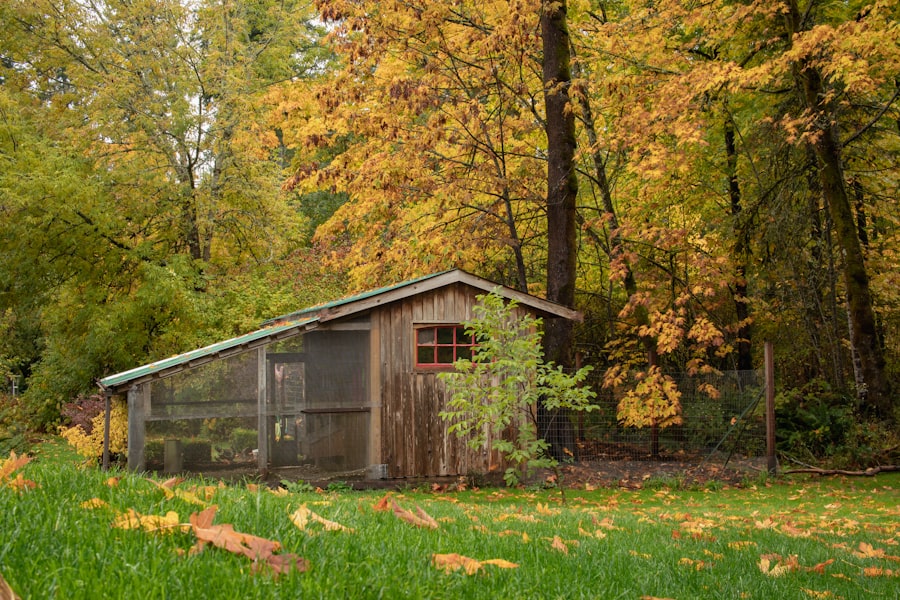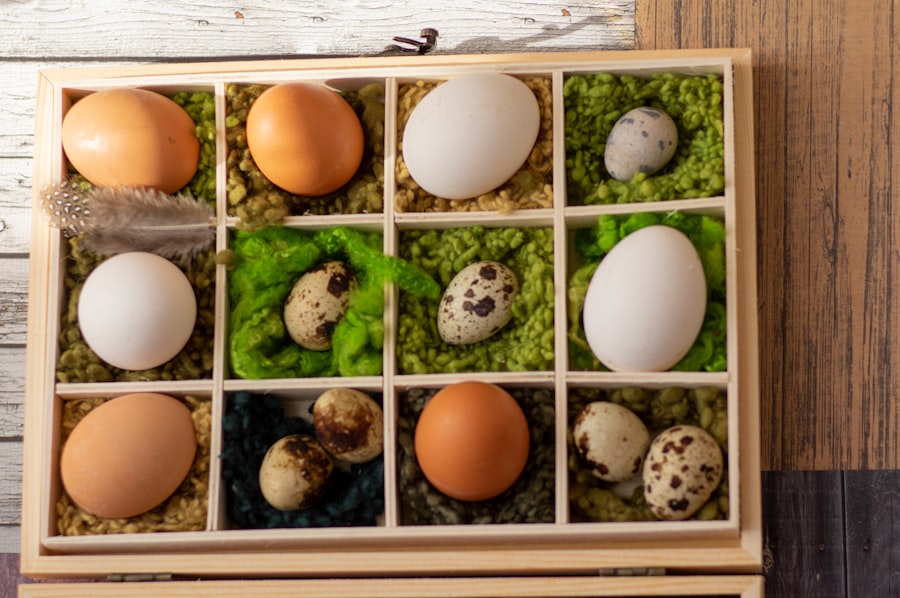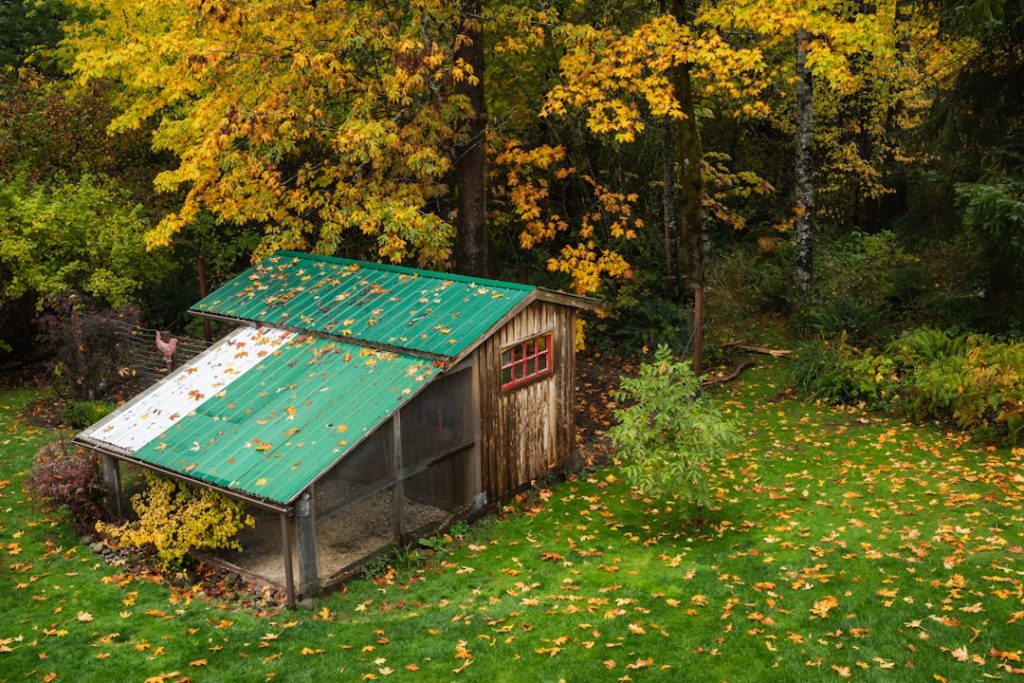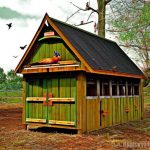Keeping backyard chickens in Florida offers numerous advantages. Primarily, it provides a consistent supply of fresh, organic eggs, which are often considered healthier and more flavorful than commercially produced eggs. This practice also promotes self-sufficiency and sustainability.
Chickens contribute to garden health by producing nutrient-rich fertilizer, improving soil quality and supporting plant growth. This is particularly beneficial in Florida’s climate, which allows for year-round gardening. These birds serve as natural pest control agents, consuming various insects and garden pests, thereby reducing the need for chemical pesticides.
They also help minimize food waste by eating kitchen scraps and leftovers, converting them into valuable nutrients for the garden. Backyard chickens can be entertaining and companionable pets, each with distinct personalities and behaviors. Caring for chickens can teach children about responsibility and animal husbandry, imparting valuable life skills.
In Florida, keeping backyard chickens combines sustainable food production, environmental benefits, and potential companionship, making it a rewarding practice for many residents.
Table of Contents
- 1 Choosing the Right Breed for the Florida Climate
- 2 Understanding Florida Laws and Regulations for Keeping Chickens
- 3 Creating a Safe and Comfortable Environment for Your Chickens
- 4 Feeding and Caring for Chickens in the Florida Heat
- 5 Dealing with Predators and Pests in a Florida Backyard
- 6 Tips for Integrating Chickens into Your Florida Backyard Landscape
- 7 FAQs
- 7.1 What are the regulations for keeping backyard chickens in Florida?
- 7.2 What are the benefits of keeping backyard chickens in Florida?
- 7.3 What are some considerations for keeping backyard chickens in Florida?
- 7.4 What breeds of chickens are suitable for Florida’s climate?
- 7.5 What should I feed my backyard chickens in Florida?
- 7.6 How can I protect my backyard chickens from predators in Florida?
Key Takeaways
- Keeping backyard chickens in Florida can provide fresh eggs, natural pest control, and a fun hobby for the whole family.
- When choosing the right breed for the Florida climate, consider heat tolerance, egg production, and temperament.
- Understanding Florida laws and regulations for keeping chickens is important to avoid fines and legal issues.
- Creating a safe and comfortable environment for your chickens involves providing adequate shelter, ventilation, and protection from predators.
- Feeding and caring for chickens in the Florida heat requires providing plenty of shade, fresh water, and a balanced diet to prevent heat stress.
- Dealing with predators and pests in a Florida backyard may require installing secure fencing, using predator-proof coop designs, and implementing natural pest control methods.
- Tips for integrating chickens into your Florida backyard landscape include incorporating chicken-friendly plants, providing ample space for foraging, and keeping the coop clean and odor-free.
Choosing the Right Breed for the Florida Climate
Heat Tolerance: A Key Consideration
First and foremost, it’s essential to select breeds that are well-suited to hot and humid weather, characteristic of Florida’s climate. Some breeds known for their heat tolerance include the Leghorn, Australorp, and Orpington. These breeds have been bred to withstand high temperatures and are less prone to heat stress, making them ideal choices for Florida backyard chicken keepers.
Egg-Laying Capabilities: A Key Factor
In addition to heat tolerance, it’s also important to consider the egg-laying capabilities of different breeds. If you’re primarily interested in having a steady supply of fresh eggs, then breeds such as the Rhode Island Red, Plymouth Rock, or Sussex may be good options. These breeds are known for their prolific egg production and can provide you with a reliable source of fresh eggs throughout the year.
Temperament and Behavior: Choosing the Right Fit
Furthermore, it’s essential to consider the temperament and behavior of different chicken breeds when choosing the right fit for your backyard. Some breeds are known for being more docile and friendly, making them great for families with children or first-time chicken keepers. Examples of such breeds include the Silkie, Buff Orpington, or Barred Rock. On the other hand, if you’re looking for more independent and self-sufficient breeds, then Mediterranean breeds like the Leghorn or Minorca may be better suited to your preferences.
Ultimately, when choosing the right breed for the Florida climate, it’s essential to consider factors such as heat tolerance, egg-laying capabilities, temperament, and behavior to ensure that you select the best fit for your backyard flock.
Understanding Florida Laws and Regulations for Keeping Chickens

Before embarking on your backyard chicken-keeping journey in Florida, it’s crucial to familiarize yourself with the laws and regulations governing the keeping of chickens in your area. While many areas in Florida allow backyard chickens, there may be specific rules and restrictions that you need to adhere to in order to keep your flock legally. These regulations can vary by city or county, so it’s important to check with your local government or zoning department to understand the specific requirements in your area.
Some common regulations that you may encounter when keeping chickens in Florida include restrictions on the number of chickens allowed per property, setback requirements for chicken coops and runs, and regulations regarding coop cleanliness and odor control. Additionally, some areas may have specific rules regarding roosters, as their crowing can be a source of noise complaints in residential neighborhoods. It’s important to familiarize yourself with these regulations to ensure that you are in compliance with local laws and can enjoy keeping chickens without any legal issues.
In addition to local regulations, it’s also important to consider any homeowners’ association (HOA) rules that may apply to your property. Some HOAs have specific restrictions on keeping chickens or may require approval before starting a backyard flock. It’s essential to review your HOA’s covenants and restrictions to understand any limitations or requirements related to keeping chickens on your property.
By understanding and adhering to local laws and regulations, you can ensure that your backyard chicken-keeping experience in Florida is legal and hassle-free.
Creating a Safe and Comfortable Environment for Your Chickens
Creating a safe and comfortable environment for your chickens is essential for their health and well-being, especially in the Florida climate. When designing a coop and run for your flock, it’s important to consider factors such as ventilation, shade, predator protection, and space requirements. Proper ventilation is crucial in Florida’s hot and humid climate to prevent heat stress and respiratory issues in chickens.
This can be achieved through windows, vents, or adjustable openings that allow for airflow while protecting against drafts. In addition to ventilation, providing adequate shade is essential for keeping chickens comfortable in the Florida heat. This can be achieved through natural shade from trees or by adding shade cloth or tarps to the coop and run area.
Ensuring that your chickens have access to cool, shaded areas during the hottest parts of the day can help prevent heat-related issues and promote their overall well-being. Furthermore, it’s important to provide ample space for your chickens to roam and exercise, as overcrowding can lead to stress and aggression within the flock. Predator protection is another critical consideration when creating a safe environment for your chickens in Florida.
Common predators in the state include raccoons, opossums, snakes, and birds of prey. To protect your flock from these threats, it’s important to use secure fencing, hardware cloth, or predator-proofing measures such as burying wire mesh around the perimeter of the coop and run. Additionally, locking coop doors at night and using predator-resistant latches can help prevent nighttime attacks on your chickens.
Overall, creating a safe and comfortable environment for your chickens in Florida involves careful consideration of factors such as ventilation, shade, predator protection, and space requirements. By prioritizing these elements when designing your coop and run, you can ensure that your flock remains healthy, happy, and secure in their backyard home.
Feeding and Caring for Chickens in the Florida Heat
Caring for chickens in the Florida heat requires special attention to their diet, hydration, and overall well-being. In hot and humid weather, it’s important to provide your flock with access to fresh water at all times to prevent dehydration. This can be achieved through the use of waterers that are kept in shaded areas to prevent overheating.
Additionally, adding electrolytes or apple cider vinegar to their water can help replenish essential nutrients lost through heat stress. In terms of diet, it’s important to provide your chickens with a balanced feed that meets their nutritional needs while considering the impact of heat on their appetite. During periods of extreme heat, chickens may eat less due to decreased appetite, so it’s important to monitor their food intake and adjust feeding accordingly.
Offering treats such as frozen fruits or vegetables can also help keep chickens cool while providing additional hydration. Furthermore, providing ample shade and ventilation in the coop and run area is essential for helping chickens cope with the Florida heat. This can be achieved through natural shade from trees or by adding shade cloth or tarps to create cool areas for your flock to retreat to during the hottest parts of the day.
Additionally, providing dust baths filled with fine sand or diatomaceous earth can help chickens regulate their body temperature while keeping parasites at bay. Overall, caring for chickens in the Florida heat involves ensuring access to fresh water, providing a balanced diet that accounts for decreased appetite during hot weather, offering cooling treats, and creating a shaded and well-ventilated environment for your flock. By prioritizing these aspects of care during periods of high temperatures, you can help your chickens stay healthy and comfortable in the Florida climate.
Dealing with Predators and Pests in a Florida Backyard

Common Predators in Florida
Common predators in Florida include raccoons, opossums, snakes, birds of prey, and even domestic pets such as dogs or cats.
Protecting Your Flock from Predators
To protect your flock from these threats, it’s important to use secure fencing around the coop and run area that is buried underground or covered with hardware cloth to prevent digging or entry by predators. Additionally, using predator-resistant latches on coop doors and windows can help prevent nighttime attacks on your flock while they are roosting. It’s also important to regularly inspect the coop and run for any potential entry points or weak spots that could be exploited by predators. By conducting routine maintenance and repairs on fencing and coop structures, you can help minimize the risk of predator attacks on your chickens.
Managing Pests and Maintaining a Healthy Environment
In addition to predators, pests such as mites, lice, flies, and rodents can also pose a threat to your flock’s health and comfort. Regularly cleaning the coop and run area can help prevent pest infestations by removing potential breeding grounds and hiding spots for pests. Using natural pest control methods such as diatomaceous earth or herbs like lavender or mint can also help deter pests while promoting a healthy environment for your chickens.
Tips for Integrating Chickens into Your Florida Backyard Landscape
Integrating chickens into your Florida backyard landscape can be a rewarding experience that adds both beauty and functionality to your outdoor space. When designing a chicken-friendly landscape, it’s important to consider factors such as space requirements, vegetation choices, and aesthetic appeal. Providing ample space for your flock to roam while protecting sensitive plants is essential for creating a harmonious balance between chickens and landscaping.
One way to integrate chickens into your backyard landscape is by incorporating raised garden beds or designated areas for planting that are protected from scratching and pecking by using fencing or barriers. This allows you to grow fruits, vegetables, herbs, or flowers without worrying about damage from free-ranging chickens while providing them with access to fresh greens through supervised grazing sessions. Furthermore, incorporating natural elements such as trees or shrubs into the landscape can provide shade for your flock while enhancing the overall aesthetic appeal of your backyard.
Planting native species or drought-tolerant plants can help create a low-maintenance landscape that benefits both your chickens and local wildlife while reducing water consumption. In addition to landscaping considerations, providing enrichment elements such as perches or dust baths can help create an engaging environment for your flock while adding visual interest to your backyard landscape. By incorporating these elements into your outdoor space while considering space requirements and vegetation choices that are compatible with chicken keeping, you can create a beautiful and functional landscape that integrates seamlessly with your backyard chicken-keeping experience in Florida.
In conclusion… Keeping backyard chickens in Florida offers numerous benefits ranging from a sustainable source of food to environmental benefits and companionship. When choosing the right breed for the Florida climate it’s important to consider factors such as heat tolerance egg-laying capabilities temperament behavior when choosing the right fit for your backyard flock Understanding Florida laws regulations governing keeping chickens is crucial before starting a backyard flock It’s essential familiarize yourself with local regulations homeowners’ association rules ensure legal hassle-free experience Creating safe comfortable environment chickens involves careful consideration ventilation shade predator protection space requirements Feeding caring chickens Florida heat requires special attention diet hydration overall well-being Dealing predators pests inevitable part keeping backyard chickens Florida several strategies protect flock potential threats Integrating chickens into Florida backyard landscape rewarding experience adds beauty functionality outdoor space
If you’re considering keeping backyard chickens in Florida, you may also be interested in learning about how long it takes for chicken eggs to hatch naturally. This article on Poultry Wizard provides valuable information on the incubation process and what to expect when hatching your own chicks. Understanding the hatching process can be essential for successful chicken breeding and raising.
FAQs
What are the regulations for keeping backyard chickens in Florida?
In Florida, regulations for keeping backyard chickens vary by city and county. Some areas may have specific zoning laws, permit requirements, and restrictions on the number of chickens allowed. It is important to check with local authorities to ensure compliance with regulations.
What are the benefits of keeping backyard chickens in Florida?
Keeping backyard chickens in Florida can provide a sustainable source of fresh eggs, natural pest control, and fertilizer for gardens. Chickens also offer companionship and can be a fun and educational experience for families.
What are some considerations for keeping backyard chickens in Florida?
Some considerations for keeping backyard chickens in Florida include providing adequate shelter, protection from predators, proper nutrition, and regular health maintenance. It is also important to be mindful of noise and odor concerns for neighbors.
What breeds of chickens are suitable for Florida’s climate?
Certain chicken breeds are well-suited for Florida’s climate, including the Florida native chicken, as well as heat-tolerant breeds such as the Leghorn, Australorp, and Rhode Island Red. These breeds are better able to withstand the heat and humidity of Florida.
What should I feed my backyard chickens in Florida?
Backyard chickens in Florida should be fed a balanced diet of commercial chicken feed, supplemented with kitchen scraps, fruits, vegetables, and occasional treats. It is important to provide access to clean water at all times.
How can I protect my backyard chickens from predators in Florida?
To protect backyard chickens from predators in Florida, it is important to secure their coop and run with sturdy fencing, lockable doors, and predator-proof latches. Additionally, using motion-activated lights and sound deterrents can help deter predators.
Meet Walter, the feathered-friend fanatic of Florida! Nestled in the sunshine state, Walter struts through life with his feathered companions, clucking his way to happiness. With a coop that’s fancier than a five-star hotel, he’s the Don Juan of the chicken world. When he’s not teaching his hens to do the cha-cha, you’ll find him in a heated debate with his prized rooster, Sir Clucks-a-Lot. Walter’s poultry passion is no yolk; he’s the sunny-side-up guy you never knew you needed in your flock of friends!







